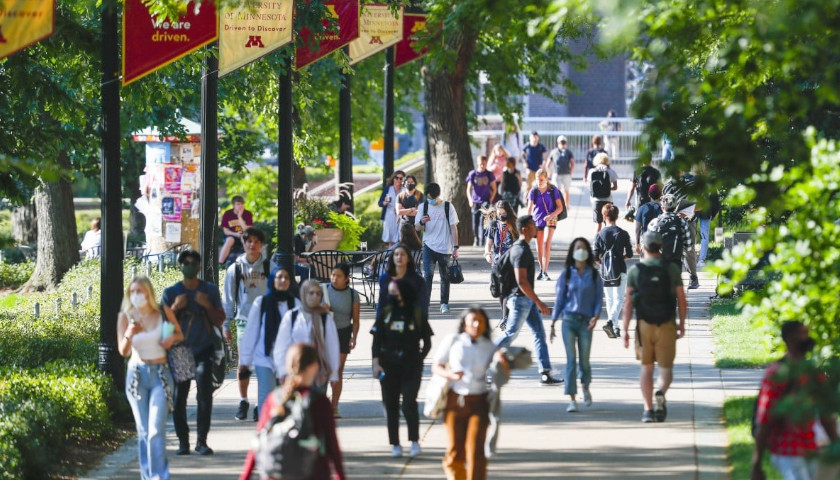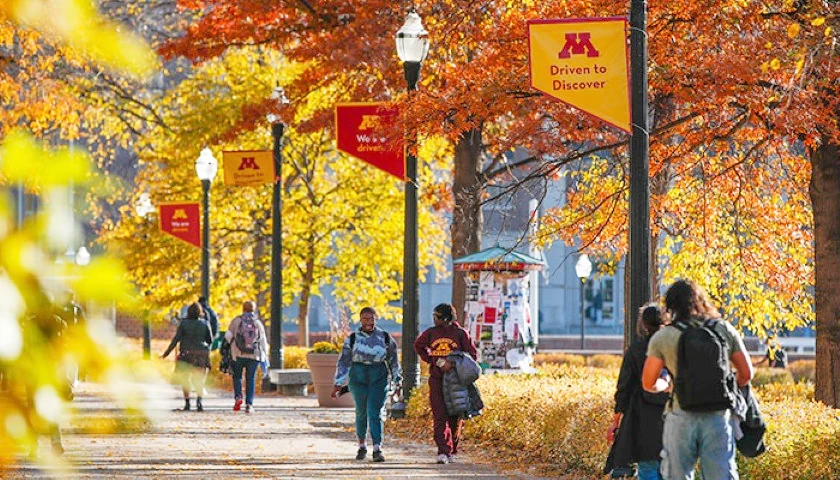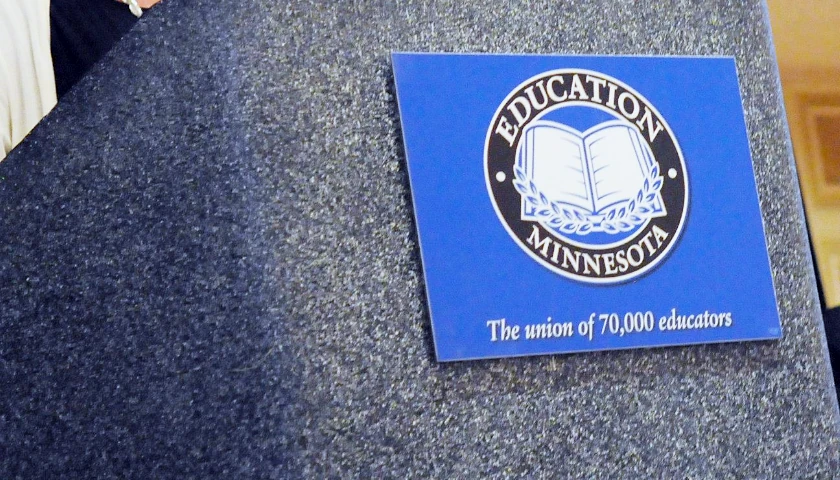by Scott Giebel
A new University of Minnesota report advocates for more “2SLGBTQIA+” individuals in environmental work, arguing their communities are disproportionately harmed by pollution and natural disasters.
Published in the university’s Gender Policy Report, the article “Environmental Justice for Queer and Transgender Communities” says queer and transgender communities tend to be left out of environmental health policies and planning even though they “experience discrimination leading to social, economic, and health disparities that place them at an increased risk for environmental injustices.”
Michelle Bell, one of the authors of the report and an environmental health professor at Yale University, told The College Fix getting different perspectives is important.
“In general, science benefits from a wide range of perspectives and insights, which is particularly important for study of differential risks by population,” Bell said in a recent email.
Bell told The Fix the inclusion of 2SLGBTQIA+ individuals also “can help build trust” between communities and decision-makers.
“Simply put, the best science to aid society will come from all voices behind heard,” Bell said.
The article states discrimination “often” is “perpetuated by institutions that center non-2SLGBTQIA+ individuals and create barriers to access.”
One of the ways they “experience disproportionate environmental burdens” involves health care, according to the article. It cites a study based on Census data that found “neighborhoods with a higher proportion of same-sex couples have a higher amount of hazardous air pollutants.”
Among the authors’ recommended solutions are the inclusion of “2SLGBTQIA+ communities, especially those with multiple marginalized identities, in planning and policymaking” and “a direct effort to recruit more 2SLGBTQIA+ academics and researchers in this field.”
However, Heartland Institute Senior Fellow Sam Karnick told The Fix the study assumes “disparate” outcomes must be due to bad policies, and therefore the government is needed to help.
“The report is a classic case of disparate-impact politics,” Karnick said via email. “Everything that is bad seems to happen more to what the report calls the 2SLGBTQIA+ community, and it always hits them harder than everybody else. This is then characterized as being caused by neglect or ill-will, which must be stamped out by government force.”
The conservative organization Young America’s Foundation also weighed in on the report’s claim that neighborhoods with a high proportion of same-sex people, or “gayborhoods,” are often located in areas with subpar air quality.
“While that very well may be true, the decision to live in such a location is purely voluntary,” the organization responded on its blog.
Karnick said he does not believe the article’s recommendations really will help the environment.
“With climate change being one of the biggest concerns of the radical Left, the 2SLGBTQIA+ community wants to get in on the action to gather more money and power for themselves,” he told The Fix.
“This effort will not clean up the environment at all, but the people behind it definitely hope to clean up in the competition for money and political power,” Karnick said.
The University of Minnesota media relations office did not respond to The Fix’s emailed questions in the past week about funding for the report and the criticism it has received.
Leo Goldsmith, a Yale University Ph.D. student and co-author of the article, did respond but said he was not answering questions at this time.
The university’s Gender Policy Report is a project of its Center on Women, Gender, and Public Policy. Its website describes the publication as a “non-partisan, multidisciplinary effort to produce and disseminate timely, gender-focused analyses of emerging U.S. federal policy proposals and developments.”
– – –
College Fix contributor Scott Giebel is a graduate assistant for sports information at Wheeling University where he is pursuing an MBA. He previously received his bachelor’s degree in Sports Journalism at Millersville University. While there he wrote for the Athletic Communications Department as well as for 717 Sports Media.
Photo “University of Minnesota Twin Cities Campus” by University of Minnesota Twin Cities.





